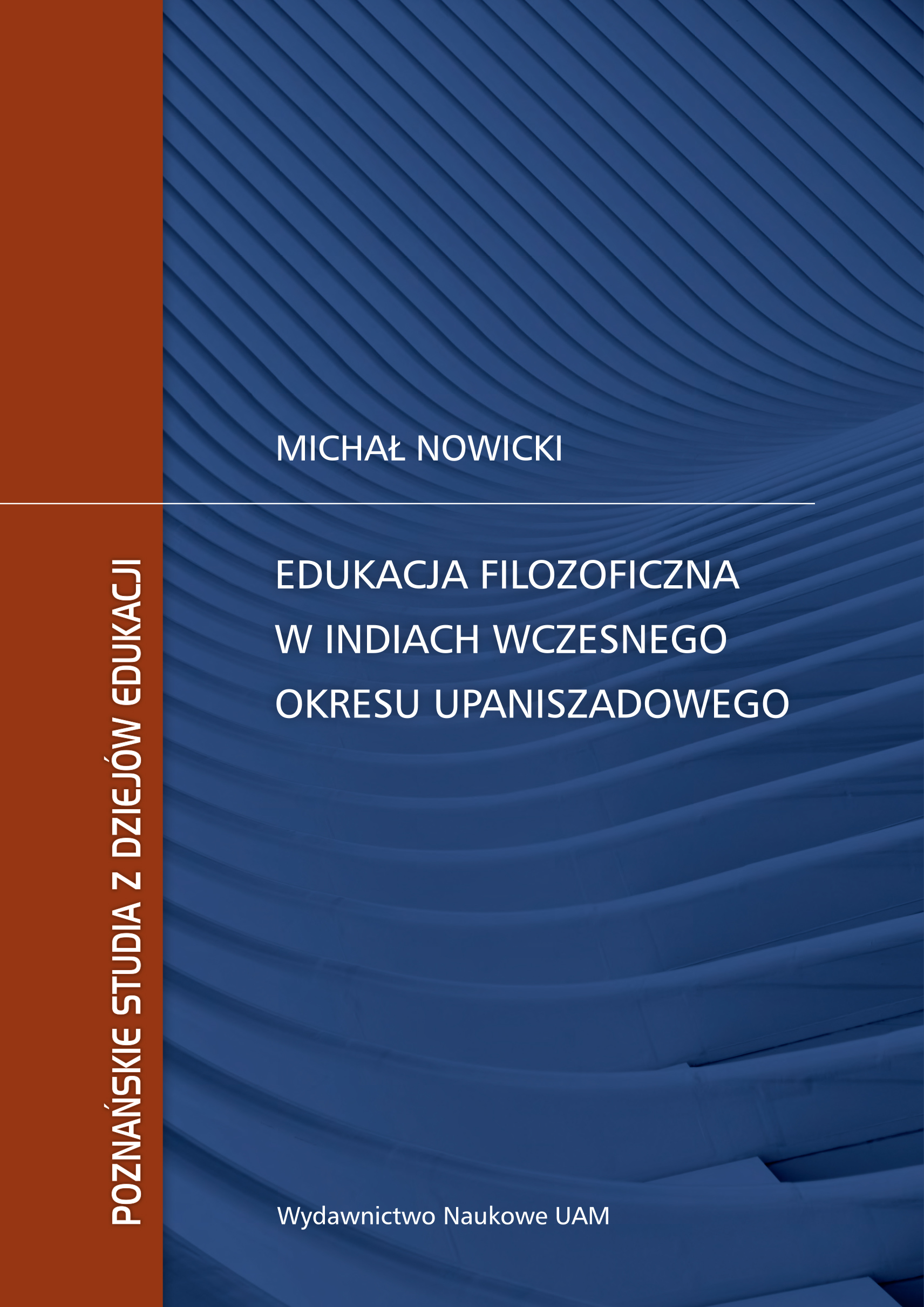Edukacja filozoficzna w Indiach wczesnego okresu upaniszadowego
Philosophical education in India in the early Upanishad era
Author(s): Michał Nowicki
Subject(s): Philosophy, Social Sciences, Education, Special Branches of Philosophy, History of Education, Philosophy of Education, Pedagogy
Published by: Wydawnictwo Naukowe Uniwersytetu Adama Mickiewicza
Keywords: philosophical education; Upanishads; Hinduism; yoga; history of education; India
Summary/Abstract: This publication is the first Polish-language presentation of the history of philosophical education in ancient India. The titular issue deserves special attention, as it goes back to the well-documented sources of this phenomenon and the beginnings of Hindu philosophical thought, revealing the roots of yoga, which today enjoy such popularity. Although the book is scientific in its nature, it is addressed to a broad audience interested in Indian culture. It shows how the phenomenon of philosophical education came into being and became deeply rooted in the original initiation structures. It discusses issues related to: (1) the proper goal of education, focusing on the issues of human suffering, liberation from it, obstacles that stand in the way of achieving this goal, and finally, human cognitive potential; (2) selection of the subjects for education, including the issues of mythical origins, the issues of cognition, atman and brahman, states of consciousness and the issue of identity or the law of karma; (3) methods of educational work, taking into account the issues of initiation and the issue of direct experience of a mystical nature, the role of words in the teaching process or the beginnings of the yoga tradition. What emerges from the narrative is the rich world of philosophical explorations, full of enthusiasm and affirmation of life and faith in the possibility of achieving unconditional happiness - a world that respects tradition and boldly seeks new ways to fulfill its potential in the best possible way.
- E-ISBN-13: 978-83-232-4286-4
- Print-ISBN-13: 978-83-232-4285-7
- Page Count: 218
- Publication Year: 2024
- Language: Polish
- eBook-PDF
- Table of Content
- Introduction

